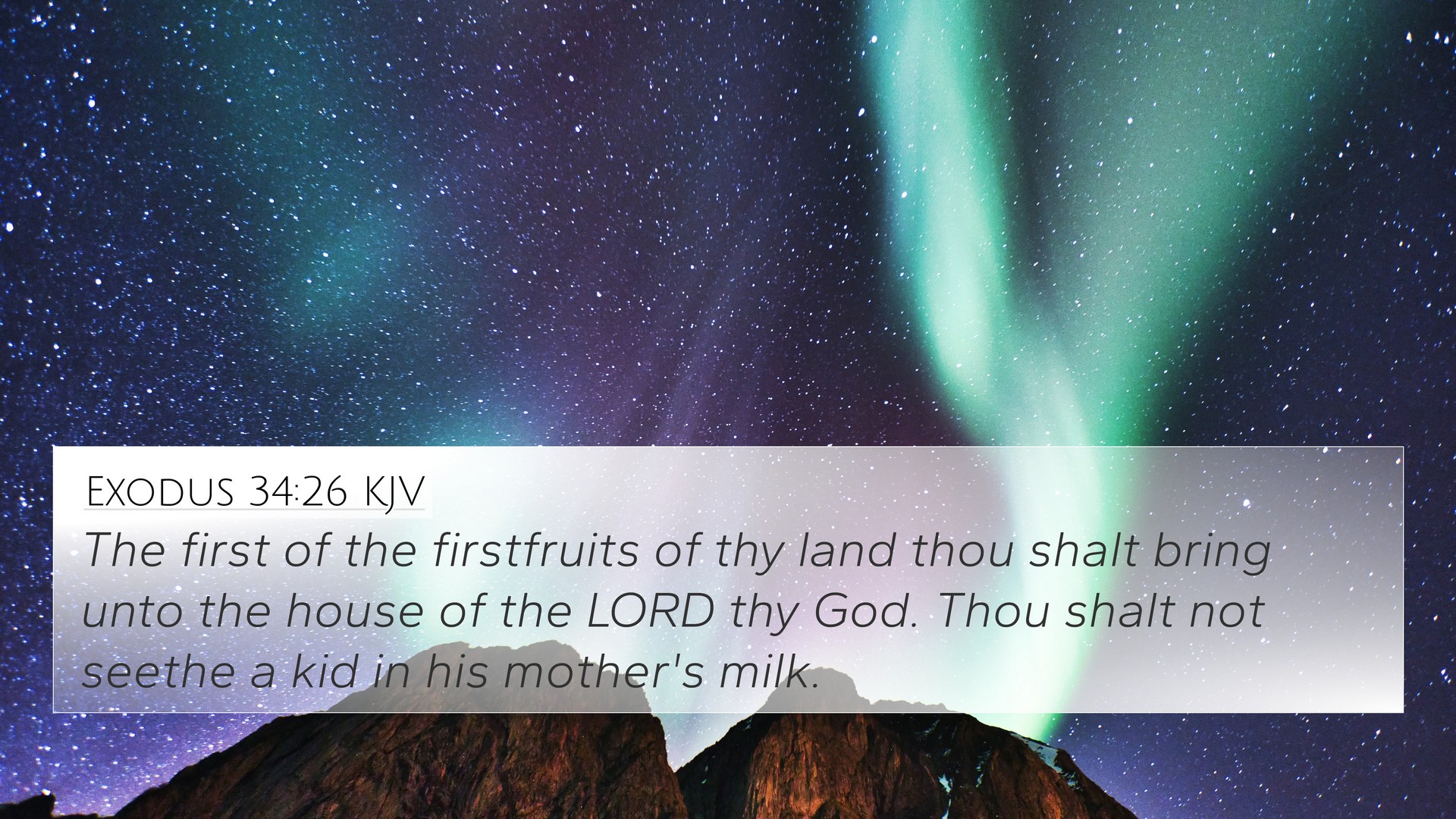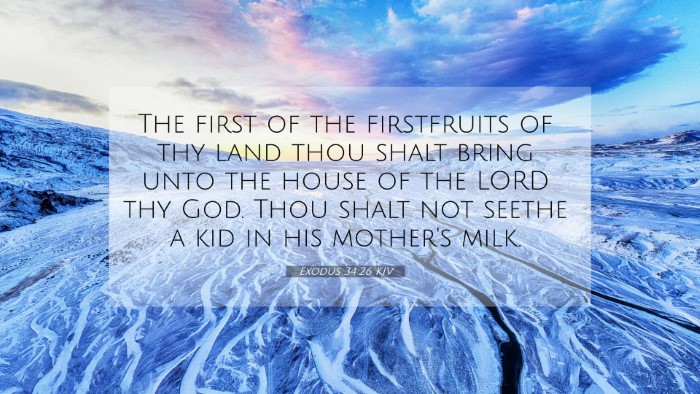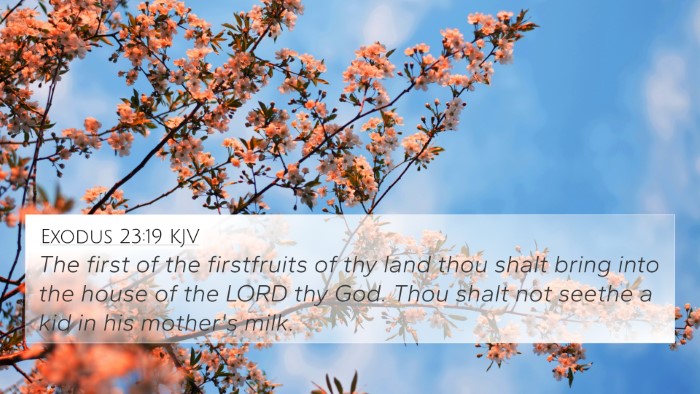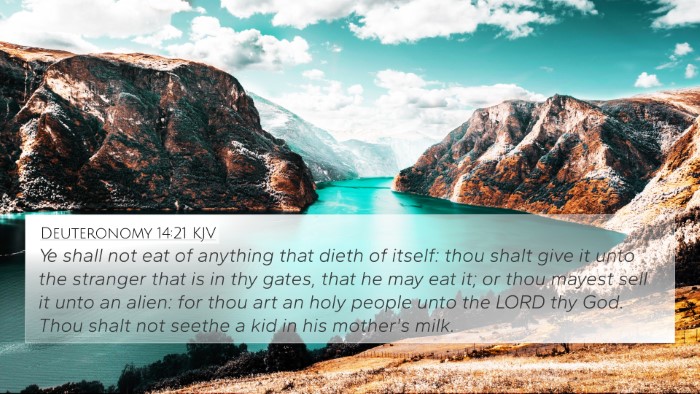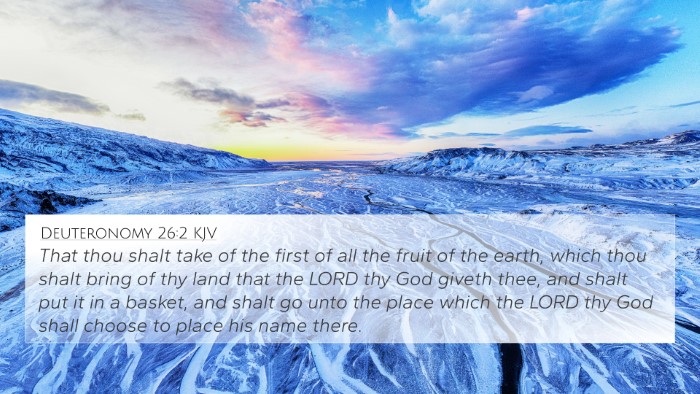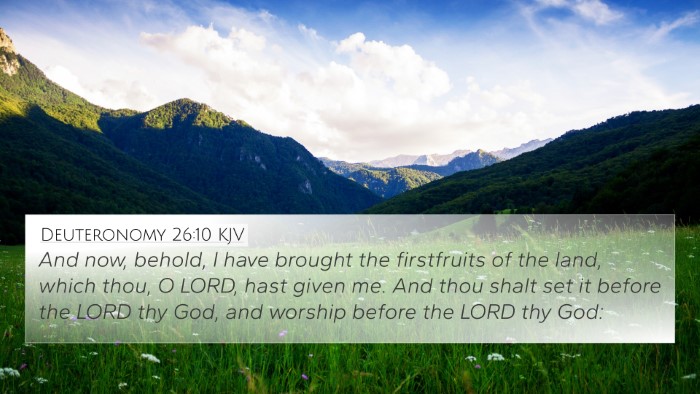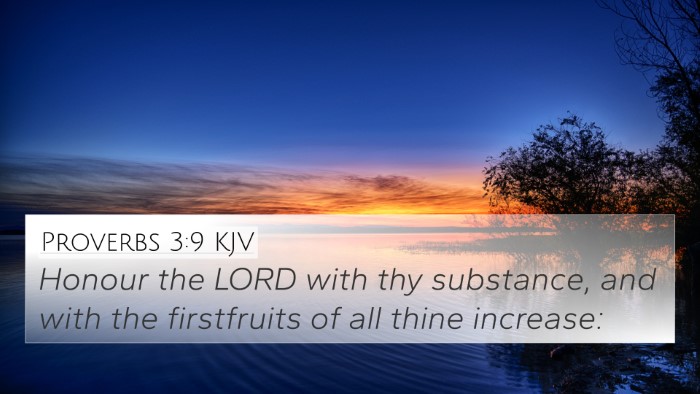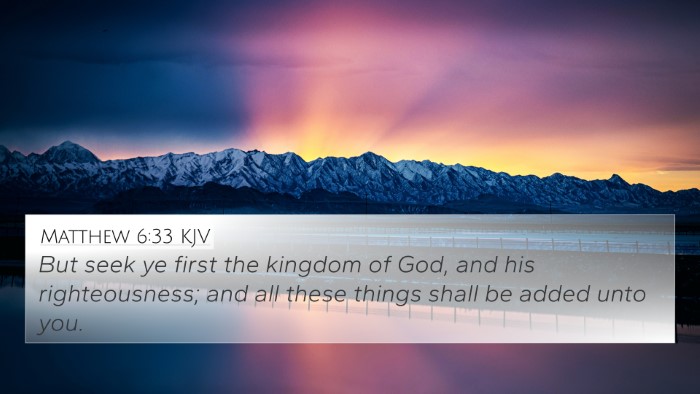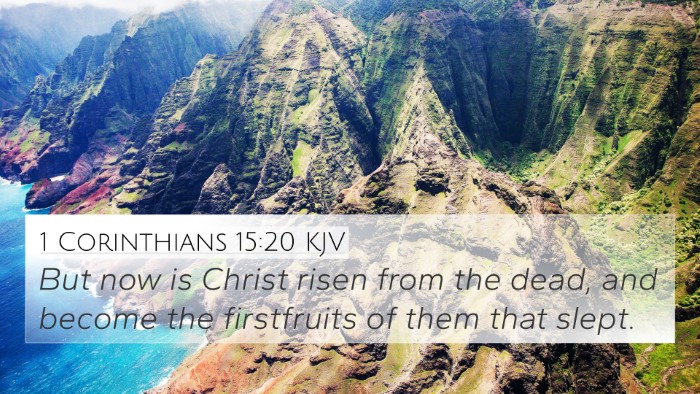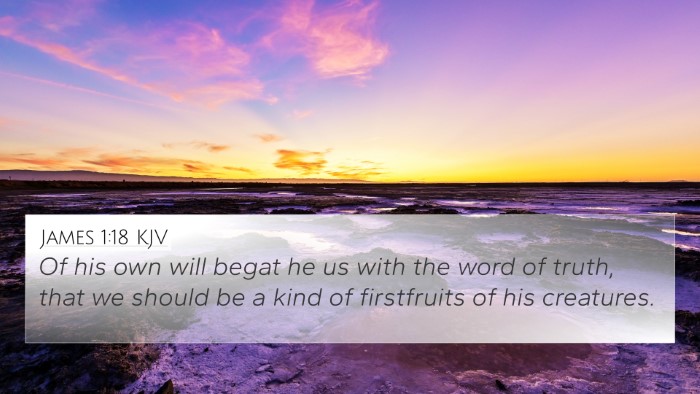Understanding Exodus 34:26
Exodus 34:26 states, "You shall bring the first of the firstfruits of your soil to the house of the Lord your God. You shall not boil a young goat in its mother’s milk." This verse, set against the backdrop of Israel's wilderness wanderings, conveys significant theological and practical teachings regarding worship and obedience.
Summary of Biblical Meaning
In combining insights from public domain commentaries by Matthew Henry, Albert Barnes, and Adam Clarke, we explore multiple dimensions of this verse:
- Firstfruits as an Offering:
Bringing the firstfruits is a theme found throughout the Bible, symbolizing dedication and gratitude to God. It implies that the Israelites were to acknowledge God's provision by offering the best of their yield (Proverbs 3:9).
- The Significance of the Temple:
The house of the Lord signifies the central place of worship for Israel, where they recognized God’s presence. This reinforces the idea that worship should be conducted in ways that honor God (Psalm 122:1).
- Prohibition Against Mixing:
The prohibition of boiling a goat in its mother's milk reflects the broader biblical principle of not mixing one’s practices. It indicates the need for holiness and separateness in Israel's worship habits, echoing Deuteronomy 14:21.
- Historical Context:
This verse is framed within the renewal of covenant between God and Israel following their idolatry. It emphasizes repentance and the necessity for Israel to return to correct worship practices (Exodus 34:10).
Detailed Cross-References
This section serves to illustrate how Exodus 34:26 connects with other scriptures. Below are relevant cross-references that highlight its themes:
- Leviticus 23:10-11: This passage emphasizes the offering of firstfruits during the feast as a way of acknowledging God’s blessings.
- Deuteronomy 12:5-6: Calls for bringing offerings to a chosen place of worship, thereby reaffirming the connection to the Temple.
- Proverbs 3:9: Advises honoring the Lord with the firstfruits of one's produce, connecting to the principle found in Exodus 34:26.
- Exodus 23:19: Reiterates the command to bring the firstfruits, confirming its importance in worship.
- Deuteronomy 14:21: Reinforces the prohibition against boiling a kid in its own mother's milk as a cultural practice to be avoided.
- Matthew 5:23-24: Emphasizes the importance of being reconciled with God, akin to the proper presentation of offerings.
- 1 Corinthians 5:7: Alludes to being pure in worship; linking the themes of holiness and sacrifice from the Old Testament to New Testament principles.
- Luke 21:1-4: Highlights the widow’s offering, showcasing the heart behind the offering rather than the quantity, similar to the emphasis on firstfruits.
Thematic Bible Connections
The themes from Exodus 34:26 weave throughout both the Old and New Testaments, highlighting a continuity of God's expectations regarding worship and sacrifice:
- The Call to Holiness: Throughout scripture, God calls His people to a standard of holiness—encapsulated in the prohibition of mixing practices.
- God’s Faithfulness: The mention of firstfruits acknowledges God's providence and faithfulness in providing for His people.
- Worship and Sacrifice: The act of offering firstfruits serves as a significant act of worship reflecting gratitude to God.
Conclusion
Exodus 34:26, while straightforward, holds profound insights that interlink with various biblical themes and doctrines. It signifies the importance of proper worship, the holiness of God’s commands, and the acknowledgment of His grace and provision. Understanding this verse necessitates an appreciation of its broader biblical context—connection through cross-referencing not only reveals deeper insights into the text but also enhances one’s study of scripture.
Tools for Bible Cross-Referencing
To further explore these connections, various tools can aid in in-depth biblical studies:
- Bible concordance
- Bible cross-reference guide
- Bible reference resources
Utilizing these tools can enhance your understanding of scripture connections, offering a richer comprehension of biblical themes and messages across both the Old and New Testaments.
